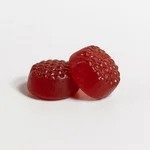Understanding Edibles
Edibles are a type of cannabis product that has been gaining popularity over the years. They are food products that have been infused with cannabis, allowing users to consume marijuana in a discreet and convenient way. Edibles come in many forms, including gummies, chocolates, and baked goods. Unlike smoking or vaping, edibles take longer to take effect but can provide a longer-lasting high.
The Effects of Edibles
When consumed, the THC in edibles is metabolized by the liver, which converts it into a compound called 11-hydroxy-THC. This compound is more potent than THC and can produce stronger and longer-lasting effects. The effects of edibles can take anywhere from 30 minutes to 2 hours to kick in, depending on various factors such as the user’s metabolism and the type of edible consumed.
Misconceptions about Edibles
There are many misconceptions about edibles, including the idea that they are safer than smoking or vaping. While edibles may be a discreet and convenient way to consume marijuana, they can also be more potent and have longer-lasting effects. Additionally, it can be difficult to dose edibles accurately, leading to potential overconsumption and adverse effects.
Understanding Diuretics
A diuretic is a type of medication that increases urine production and helps the body get rid of excess fluids. Diuretics are commonly used to treat conditions such as high blood pressure, heart failure, and edema (swelling caused by excess fluid buildup).
Types of Diuretics
There are three main types of diuretics: thiazide, loop, and potassium-sparing. Thiazide diuretics are the most commonly prescribed type and work by decreasing the amount of salt and water reabsorbed by the kidneys. Loop diuretics are more potent and work by blocking the reabsorption of sodium and chloride in the kidneys. Potassium-sparing diuretics are the least potent and work by increasing the excretion of sodium while retaining potassium.
Side Effects of Diuretics
While diuretics can be effective in treating certain conditions, they can also have side effects. Common side effects of diuretics include increased urination, dehydration, low blood pressure, and electrolyte imbalances. If not monitored closely, diuretics can also lead to more serious side effects such as kidney damage and gout.
There is no evidence to suggest that edibles have diuretic properties. While edibles may increase urine production in some individuals, this is likely due to the increased fluid intake that comes with consuming food.
Confusion with CBD
There is some confusion surrounding edibles and CBD. CBD is a non-psychoactive compound found in cannabis that has been shown to have various health benefits, including reducing inflammation and anxiety. CBD can be consumed in various forms, including edibles. However, unlike THC, CBD does not produce a “high” and does not have any diuretic properties.
Potential for Dehydration
While edibles may not be a diuretic, they do have the potential to cause dehydration. Consuming edibles can lead to dry mouth and increased thirst, which can lead to increased fluid intake. However, if users do not consume enough water, they may become dehydrated. It is important to stay hydrated while consuming edibles to prevent potential dehydration.
Conclusion
In conclusion, edibles are not a diuretic. While consuming edibles may increase urine production in some individuals, this is likely due to increased fluid intake and not the properties of the edibles themselves. However, it is important to stay hydrated while consuming edibles to prevent potential dehydration. As always, it is important to consume cannabis products responsibly and in moderation.












